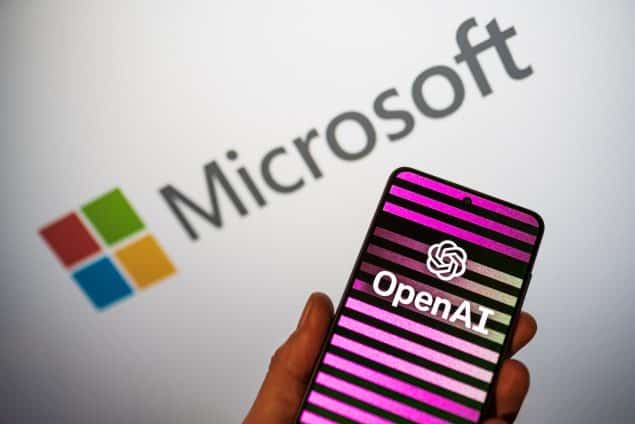Home » Business News • Microsoft News • UK Business News • US business news » Microsoft’s investment in OpenAI could face EU investigation
Microsoft’s investment in OpenAI could face EU investigation
https://www.whatjobs.com/news/usa/us-business-news/microsofts-investment-in-openai-could-face-eu-investigation

By Nithya Bose in Business News, posted January 10, 2024

The European Union is considering probing Microsoft's investment in OpenAI, the developer behind ChatGPT, under the EU's merger regulations.
This comes a month after the UK said it also evaluated the impact of the partnership on competition.
The European Commission, the executive arm of the EU, announced recently that it sought input from interested parties.
It evaluates the level of competition in virtual worlds and generative artificial intelligence and provides feedback on how competition law can maintain competitiveness in these markets.
The commission said: “The European Commission is checking whether Microsoft’s investment in OpenAI might be reviewable under the EU Merger Regulation.”
Last month, the UK's Competition and Markets Authority sought feedback on whether the Microsoft-OpenAI partnership should be treated as a de facto merger.
It marked the preliminary step that could lead to a formal investigation.
These regulatory developments in Europe follow the noteworthy changes in OpenAI's leadership late last year.
It involves the dismissal and subsequent reinstatement of Chief Executive Sam Altman, alongside forming a new board.
In this reshuffle, Microsoft secured a non-voting observer position on OpenAI's board.
Microsoft said its partnership with OpenAI since 2019 has driven AI innovation and competition while preserving the independence of both companies.
A Microsoft spokesperson said: “Microsoft said that, since 2019, its partnership with OpenAI had fostered more AI innovation and competition, while preserving independence for both companies.
“The only thing that has changed recently is that Microsoft will now have a non-voting observer on OpenAI’s board.”
Looking to boost your online brand? Create your FREE business profile at WhatBiz? here.
OpenAI has not provided a comment in response to these regulatory considerations.
The debut of ChatGPT in late 2022 took the internet by storm, which made Microsoft invest $13 billion in OpenAI.
In exchange, Microsoft secured a 49 percent stake in the earnings of its for-profit arm.
The EU invites feedback from interested parties on this matter until March 11.
Follow us on YouTube, X, LinkedIn, and Facebook.














